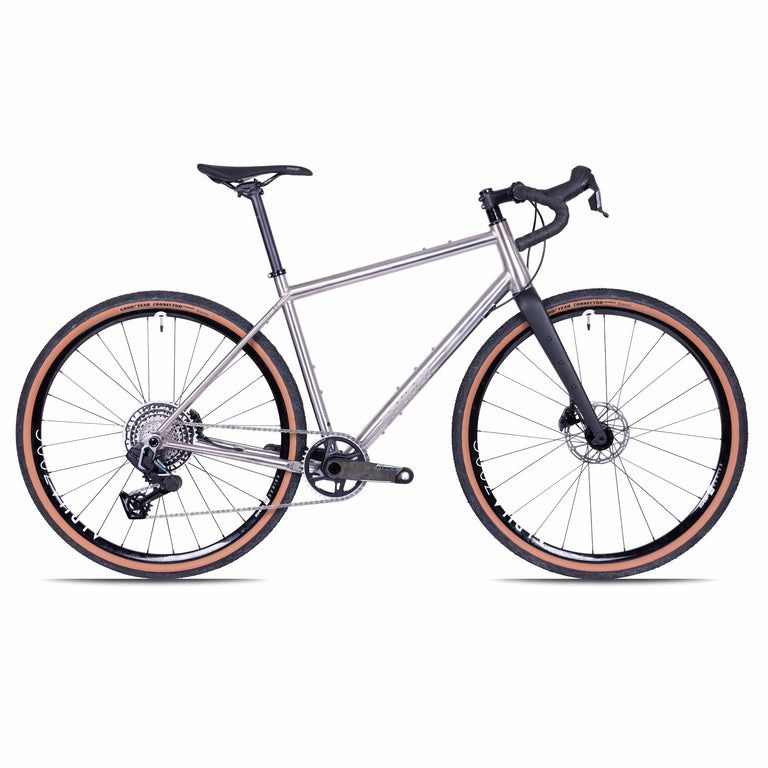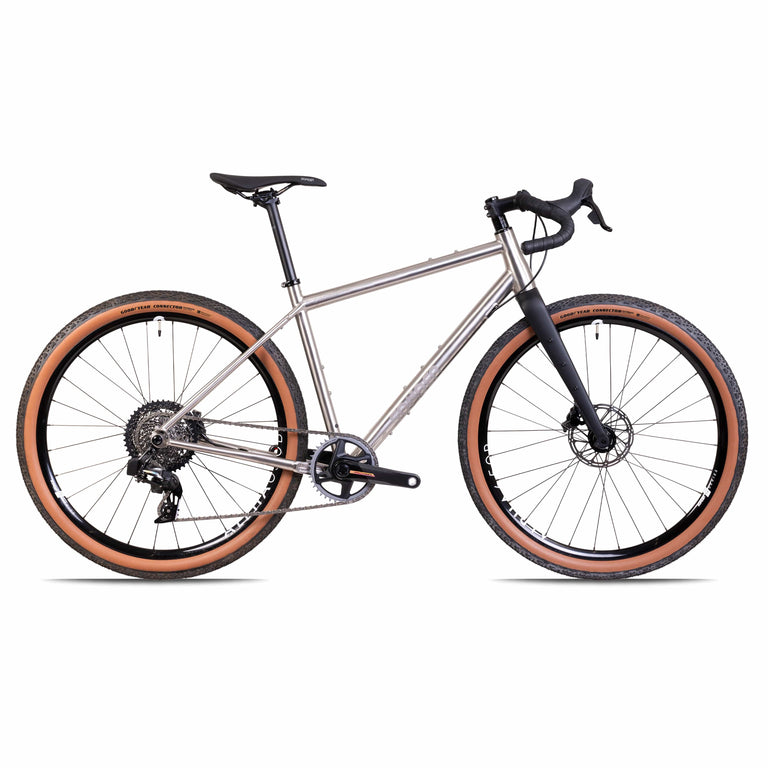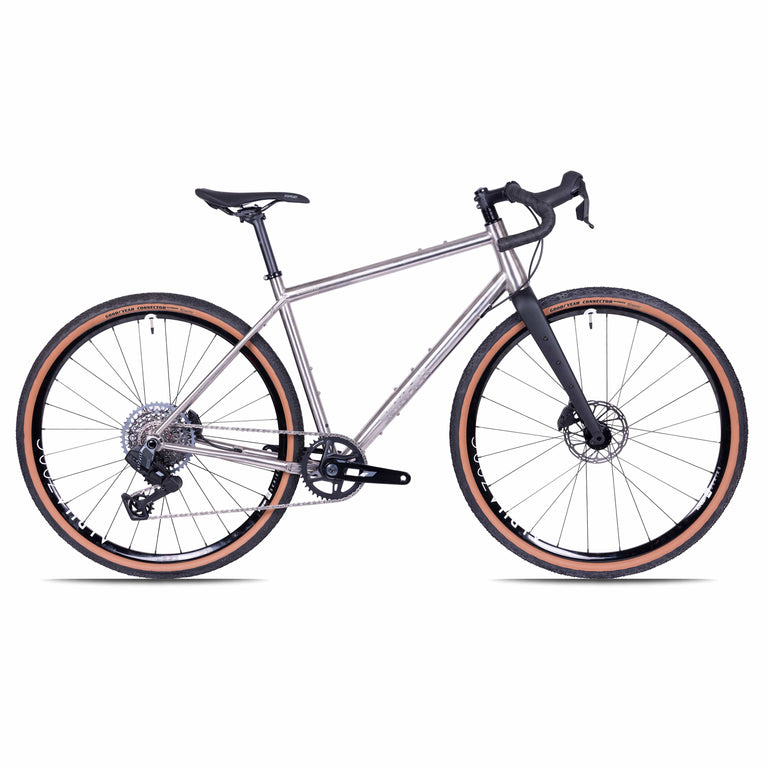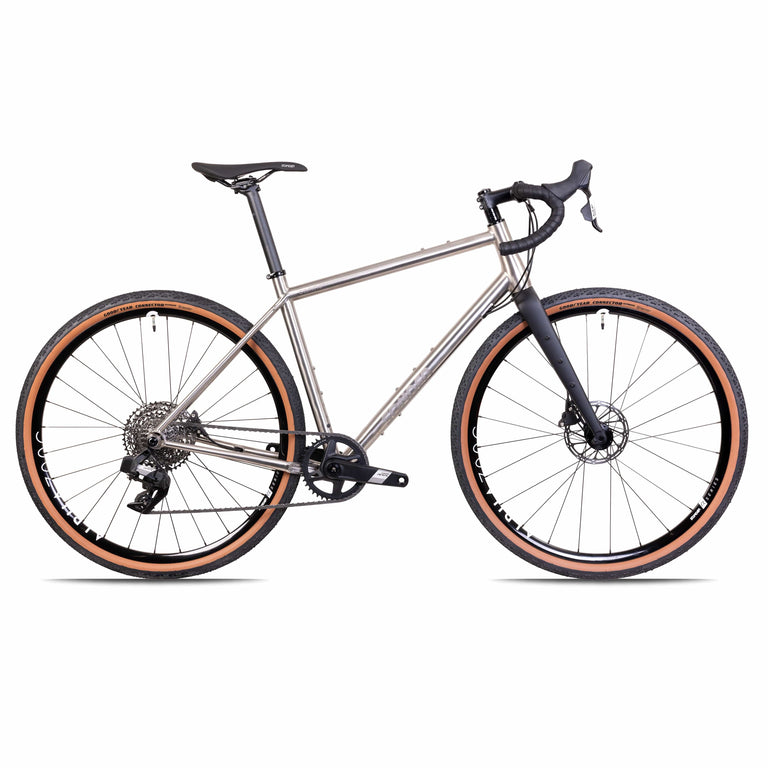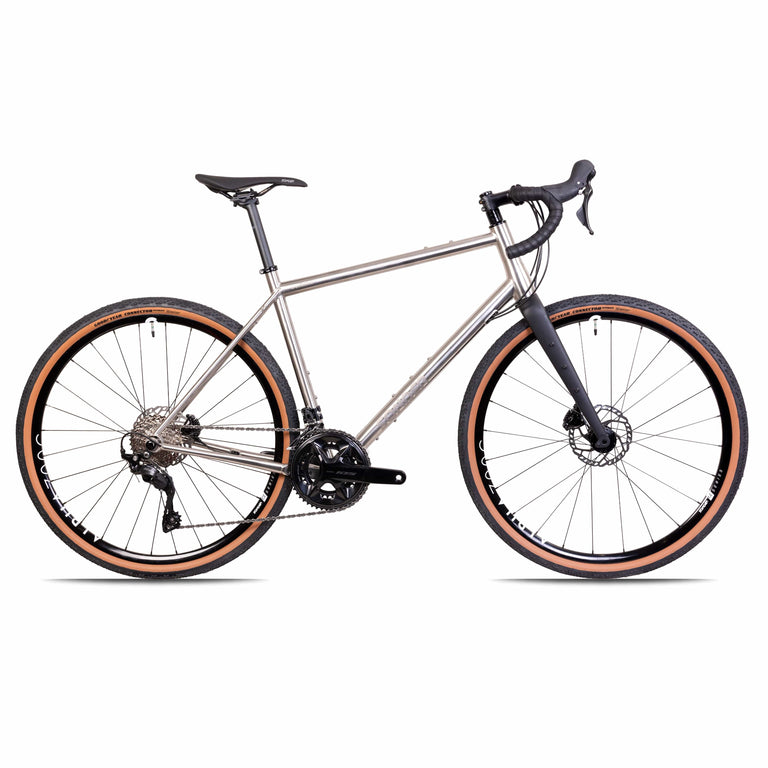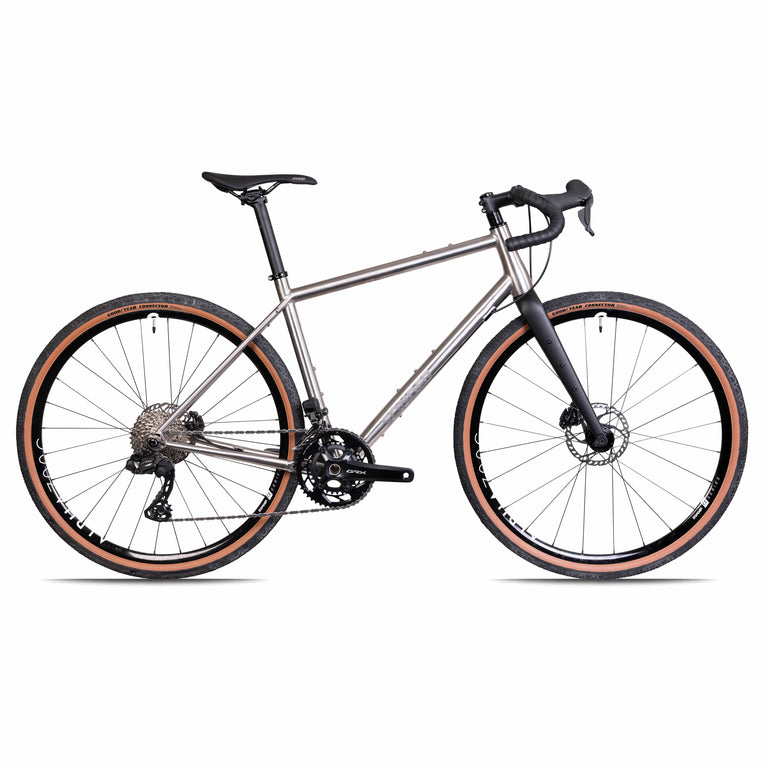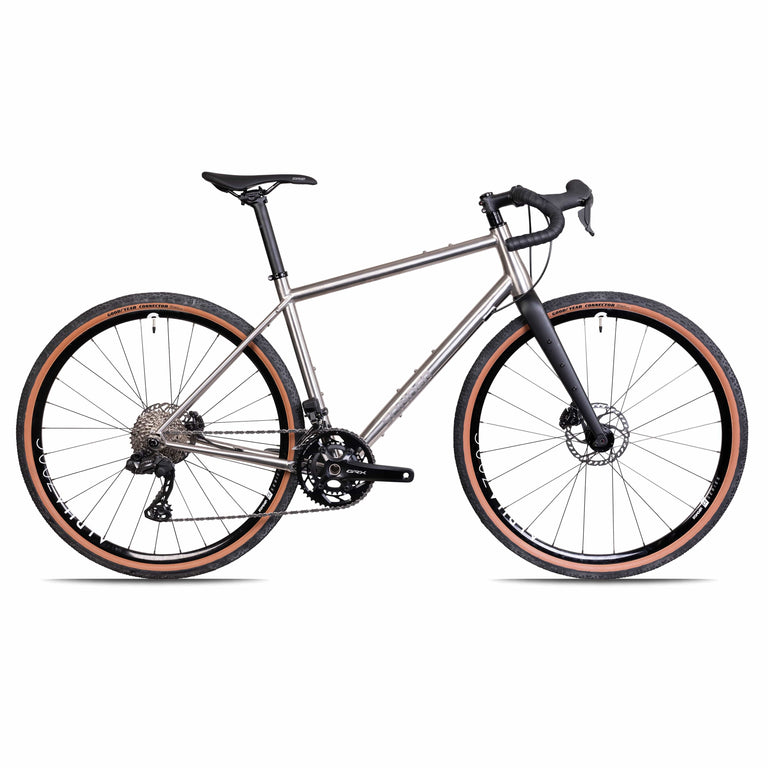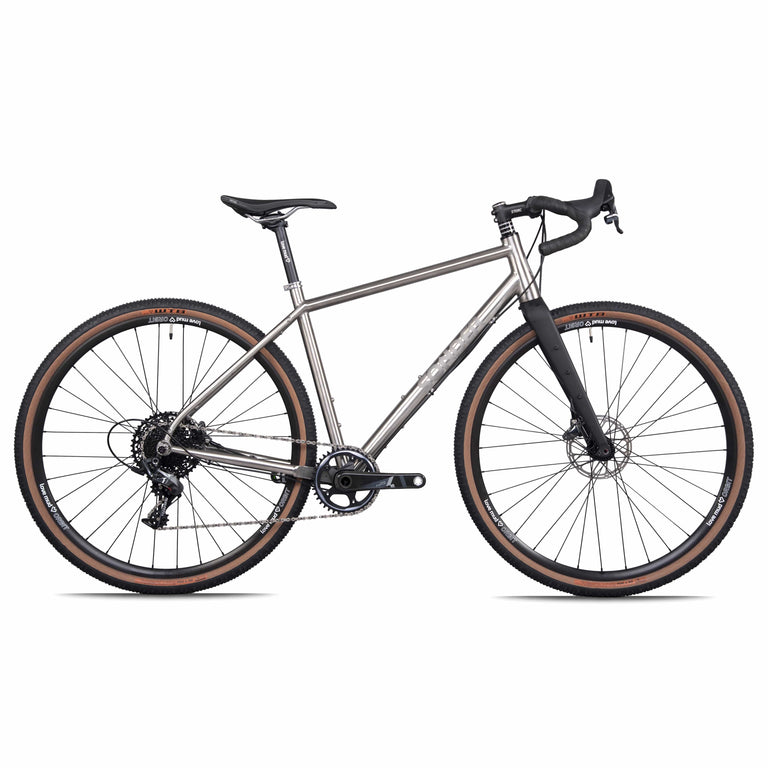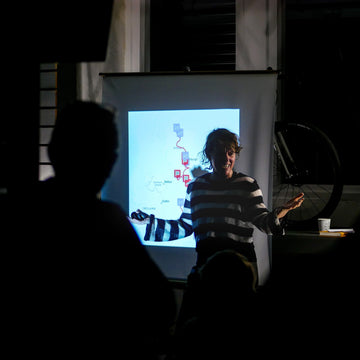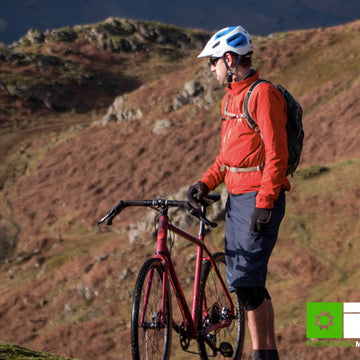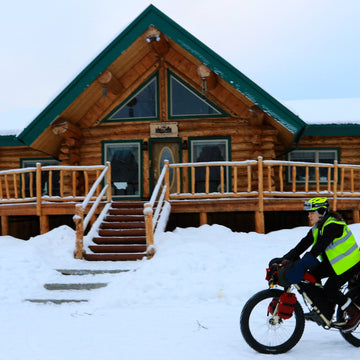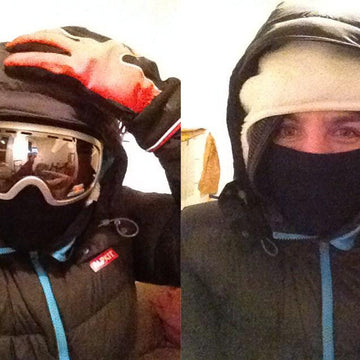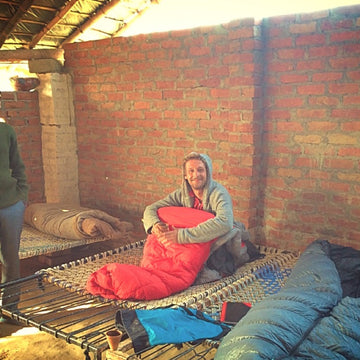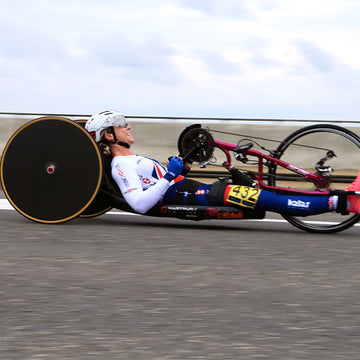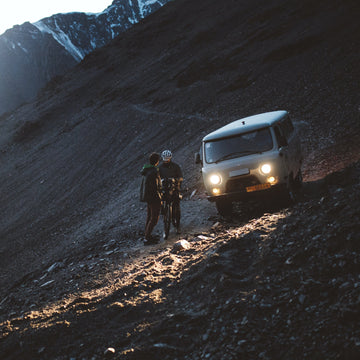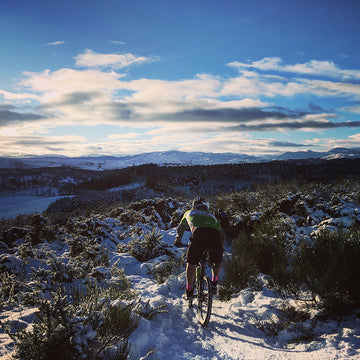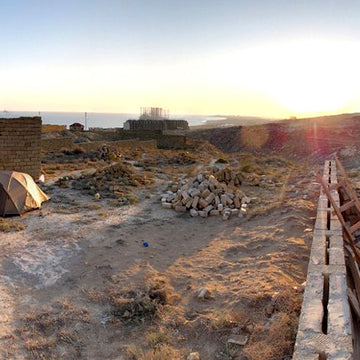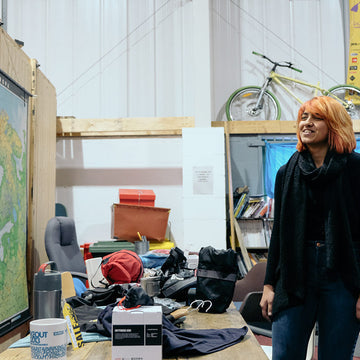
Mark Wedgwood rides his Sonder Calibri from Boring to Dull to complete a great adventure by bike and link two communities “paired for the ages” but separated by 4,546 miles
When an adventure finds you, you know. So I realized some months in advance that I would be cycling from Boring, Oregon to Dull, Scotland - two communities “paired for the ages” but separated by 4,546 miles – because once the idea took root, it wouldn’t go away.
A year earlier, in 2022, I had cycled 7,300 miles across Britain by crossing all 204 Ordnance Survey Landranger maps in numerically ascending order. It was a wonderful six-month adventure and I wrote an article about it for Alpkit (where I bought my Sonder Calibri AL bike). After that, I wanted more.
During my way across map 52, just after Loch Tay, I had encountered a large sign saying “Welcome to Dull, paired with Boring, Oregon” and taken a photograph. Six months later I was invited by an old friend to go hiking in July 2023 across the wilderness and mountains of Washington state, along the Pacific Crest Trail. We would walk, self-supported for almost 500 glorious miles – and it all began in Cascade Locks, Oregon, in the magnificent Columbia River Gorge. I was intrigued to know whether, in this huge state, I might be anywhere near Boring. It turned out I was just 36 miles away! When I also discovered that 9th August every year is officially (due to an act of Oregon state law) celebrated as “Boring and Dull Day”, I knew how I would be getting home at the end of my mammoth hike!
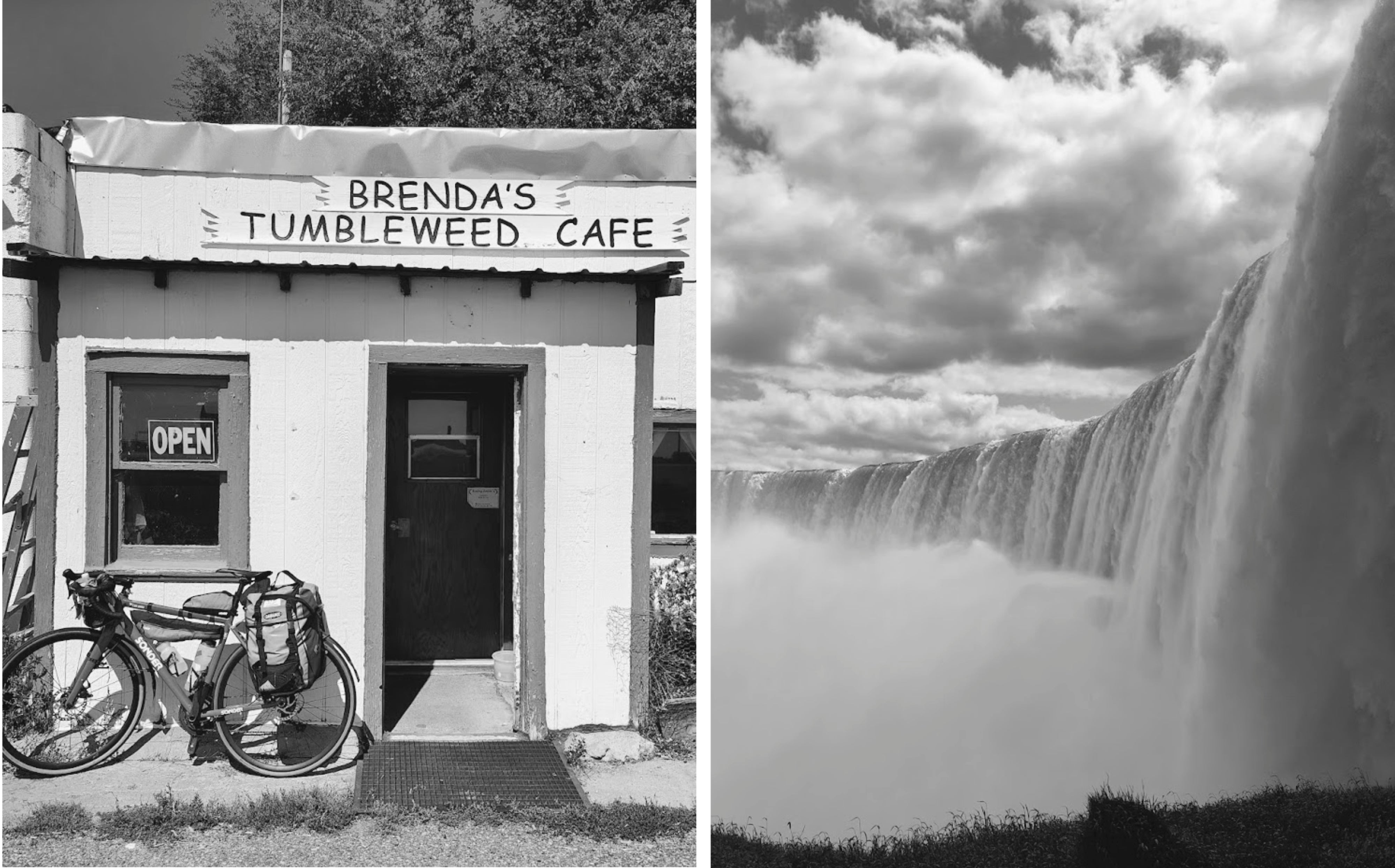
And so it began. I shipped over the same Sonder bike to a friend’s house in Seattle, took a train to Portland, Oregon, and headed first for the coast. It wasn’t strictly on my route, but I wasn’t going to miss the chance to complete a full coast-to-coast ride across North America. I started cycling in a stunningly beautiful place called Oceanside, Oregon and arrived, two days later, in Boring, where I was given a warm reception. I was asked to take part in “Oregon’s second shortest parade”, cycling very slowly behind the bagpipers who led everyone off. For an afternoon I was a sort of minor celebrity, and then I was waved off in the direction of Cascade Locks to start an epic six week ride to New York City, 3,200 miles away - and my stepping stone across the Atlantic to Dull. It was really happening!
My main plan was to stick as close as I could to a straight(ish) west-to-east line and the superb Columbia River Gorge offered the perfect way to start. This is a major waterway that forms the state boundary between Oregon and Washington, surrounded on both sides by green hills, waterfalls and the more distant snow domes of the cascade volcanoes – and in particular magnificent Mt Hood, next to Boring. The river was almost a mile wide, and I followed it upstream along the north shore for the first couple of days as things grew slowly more arid, hot and desert-like. Finally, alongside a replica of Stonehenge (really!), I snaked my way up and away from the river into what felt like the middle of nowhere. It was my first taste of the wide open spaces, big skies and barren lands of the American west. It was also my first taste of unexpected – and unwelcome - gravel roads (thanks Google Maps!) and serious heat.
The next few days reached above 100 degrees Fahrenheit and I was stopping for fluid at every opportunity and trying to drink it before it became warm. In the golden corn fields of the Palouse hill country of eastern Washington state, there were small, traditional towns every 25 miles or so, and the cycling was bearable. This was the start of my relationship with US Route 12, which I followed all the way to Minnesota, 1500 miles away. I was averaging 100 miles a day and often passing through very few settlements of any significance. After a long and beautiful day of climbing alongside the Clearwater River through the forests of Idaho, I descended from the rocky mountains into the pleasant small city of Missoula, Montana. Then I was in ranching country. As the hills flattened into plains, I found myself all alone (except for the thousands of crickets on the road) on long, straight seemingly endless highways, passing ghost towns and following beside the tracks of trans-continental freight trains over a mile long. The towns, when they came, were often run down and little more than a huge grain silo and an intersection with a bar and a gas station or two. I stayed in cheap motels and ate what I could find, which was mostly some combination of meat and bread. I began to crave vegetables.
In the long, empty spaces, I enjoyed counting down the miles, guessing where the next milepost was, and doing motivational mental arithmetic to pass the time. The days and the miles passed, and eventually the vast open spaces of eastern Montana gave way to those of North Dakota. There were occasional surprises: the prospect of a root beer ice-cream float enticed me inside a cavernous building in another middle-of-nowhere semi-ghost town. A lady switched on the lights for me to reveal a treasure trove of hundreds of vintage American cars, all beautifully preserved and seen by almost no one!
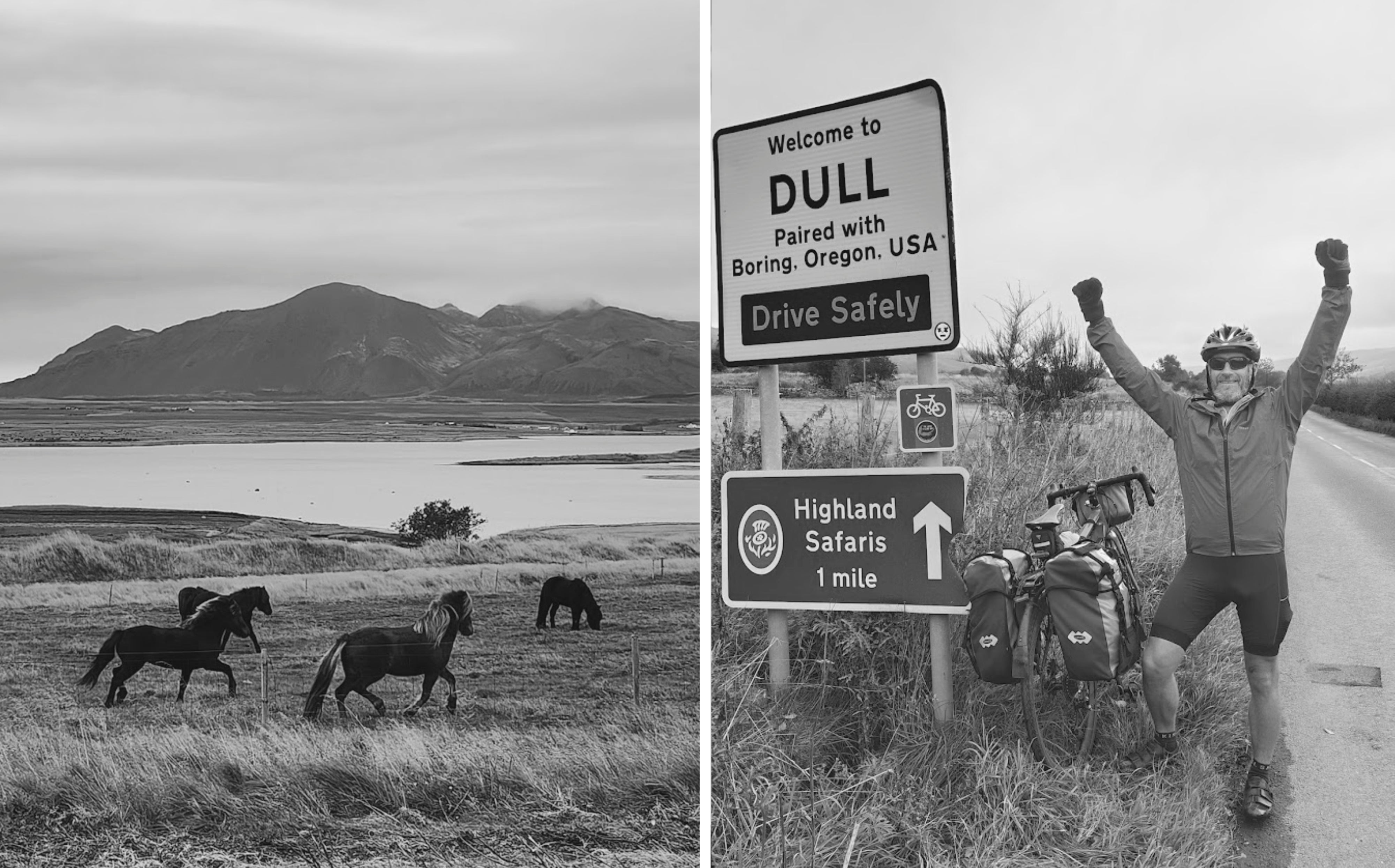
North Dakota became South Dakota, but it looked much the same. I stopped for nourishment wherever I could. A highlight, in its own way, was Brenda’s Tumbleweed Café. It was well named. There was very little else out here except farms. Despite this, she warned me not to stop in the next town, but I had to. It was on a Native American reservation. I met a group of impoverished and unhealthy looking people at the only gas station. A drunken old man spoke to me and blessed me. A younger man offered me accommodation. These people were visibly disadvantaged; but proud and friendly. Others wished me well through their car windows. I’m glad we met.
Four nights later, after crossing the huge Missouri River, and then many, many more miles of endless fields and crop silos, I entered Minnesota. A day later, things got noticeably busier as I approached the Twin Cities of Minneapolis and St Paul, either side of the mighty Mississippi River. What a contrast! Ever since Portland, Oregon, I had seen nothing like this. I was in a different America now – more prosperous and populated here, with all the modern urban development that goes with it. I stayed on a small farm with friends, once far into the country, now close to being subsumed by the endless march of development. I had my bike serviced as a precaution against the many miles ahead and allowed myself a couple of proper rest days – my first since Boring!
The Mississippi marked a true crossing point from West to East, geographically and culturally, and it all felt a little different from here onwards. There was still lots of space, but I was no longer in the middle of nowhere. It got very hot again. I followed the steamy Mississippi River valley downstream for a couple of days. The towns felt older and the river – already huge 2,000 miles away from meeting the sea – dominated the landscape. I saw enormous barges making their way slowly south and regular, long freight trains. On both banks – in Minnesota, Iowa and Wisconsin - they rumbled alongside me, with too many wagons to count, their horns wailing plaintively through the night. That is such an evocative sound – it has to be one of my favourite noises.
My route took me east across Wisconsin to its capital, Madison, a university city surrounded by large, pleasant lakes. Here was a place I thought I might be happy to live. It felt like a good mixture of man and nature, old and new, and I was sad I had to press on. But such was the nature of this journey – and I had a deadline to hit. My friend was meeting me on the far side of the Great Lakes at Niagara Falls to ride the final week to New York City. After that, my wife would be waiting to support me as I attempted to cycle across Iceland, by way of the Arctic Circle, to Dull. And so the miles continued. I reached Lake Michigan at the large, industrial city of Milwaukee, whose downtown streets were full of older, taller, imposing buildings. A ferry took me over the massive lake to the state of Michigan, which I crossed in three pleasant but unremarkable days, using cycle routes along old railroads. At the small town of Algonac, about 50 miles north of Detroit, I crossed the St Clair River and entered Ontario, Canada!
The first stop sign I saw was in English and French. The second one just said “Nookshkaan” and I realized I was in First Nation lands. Walpole Island is unceded territory, also going by the native name Bkejwanong. It is traditionally held to be the final resting place of the legendary Shawnee chief and warrior Tecumseh, who successfully united many native peoples to resist the expansion of the USA into native lands. He was killed nearby in the Battle of the Thames in 1813.
For the next three days, I followed the north shore of Lake Erie and enjoyed Yellow Perch in a bread bun at the beachside cafés. The pretty little harbours were small and unassuming, and the lakeshore development was modest. It was like the seaside, but without the salt! Otherwise, there wasn’t much beside the Canadian flags to obviously distinguish Ontario from Michigan. Not, that is, until I reached Niagara Falls, where everything normal was put on hold. The falls themselves, best viewed from the Canadian side, are a natural wonder and well worth the effort of getting here. You never tire of them: by day rainbows dance above the mist and spray; and by night, both the larger Horseshoe Falls and somewhat smaller American Falls are illuminated in a rainbow of ever changing colours. But away from the water’s edge, you are in one of the tackiest places I know. It put me in mind of a high-rise Blackpool, with a cluster of ugly, tall buildings competing for views of the falls from the sky.
My friend, Simon, and his wife and daughter, walked from the USA across the bridge over the spectacular gorge to meet me, and thus began a wonderful week of supported (pannier-free) cycling along the superb Empire State Trail. The weather continued to be almost perfect, and the cycling was a pleasure. We broadly followed the Erie Canal east for four days and then the mighty Hudson River south for another three, along mostly well-signed, traffic-free, bike friendly surfaces. We passed through several larger places like Rochester, Syracuse, Schenectedy and Albany; but it was mostly rural and peaceful, with small, pretty towns along the way. There was a sense of history now, too, as we crossed New England. We were still pushing out 80 miles a day; but it was relaxing and the days slipped by easily. On our final morning together, we had the thrill of cycling safely along the cycle path down the west side of Manhattan Island, all the way to the 9/11 memorials and Battery Park at the bottom tip, within sight of the Satue of Liberty. What a climax to an amazing six weeks. This is an experience to savour, and any visitor to NYC can rent a local town bike and join in. My nephew appeared for the last few miles, and the whole thing felt like a very suitable end to an exciting journey.
Except it wasn’t the end for me. Dull still lay ahead, and my work wasn’t done. Early the next morning, I landed in Reykjavik, rebuilt my bike, and rode away from the airport into a chilly Icelandic dawn. It was mid-September, and I had entered another world – and a very different climate! Iceland sits tectonically astride both the North American and European continental shelves and you often fly over it, so it seemed an appropriate stop on the way to the UK. I had a plan to cycle for about 10 days right across the top of the island, starting in Reykjavik and ending at the eastern tip, where a once weekly ferry sets sail for the Faroe Islands. In the middle of this journey, I was hoping to make a trip to the island of Grimsey, which sits on the Arctic Circle. Having been in the Antarctic for the first and only time this January, it felt right to at least make an attempt to reach it, and it was still only September.
However, September in Iceland is the start of the winter season and I was faced with very different cycling conditions from the start. I enjoyed a rest day in Reykjavik to get organized, buy warmer cycling clothes and a new tyre, and to catch up with Jenni. Then, I made a start the next day, heading out clockwise on the ring road, which is pretty much the only way to travel to anywhere in this wild country. The frozen interior is pretty impenetrable all year round. It wasn’t a big road, and all the traffic heading north out of the capital was on it, so I had to be careful. I was immediately heading into a stiff breeze; but it was dry and I could cope. I covered 50 miles and we stayed overnight near the pretty little town of Borgarnes, surrounded by mountains and fjords. Volcanic Iceland enjoys limitless supplies of geothermally warmed water, so you can swim and bathe in outdoor pools and tubs just about anywhere here – so we did. It was a very pleasant way to fill the evening and would be the first time of many!
The next day I planned to complete 50 more miles, which seemed a sensible target in this harsh environment. The wind was in my face again, but the first 25 empty miles through bizarre lava fields and jagged mountains went well enough. Then the road ramped upwards onto a high plateau and became more exposed. That was when I learned why there were no other cyclists on these roads. The wind became truly brutal, and I was pretty scared. I was riding against it at a 45-degree angle, struggling to stay upright. When large vehicles passed close by, I had to brace myself. I made it to our farmhouse accommodation quite shaken.
The next day brought bright blue skies and sunshine. So, of course, I had to try again. For a couple of hours, it was a real pleasure. Perhaps I could do this after all. Then I turned a corner and was hit by a wall of wind all over again. Even on such a lovely day, it was almost impossible and felt quite dangerous. Imagine throwing in cold rain on top of that. No thanks. One of my rules is always that my adventures have to be enjoyable. This – most definitely – was not. It was time to stop. There were other routes to Dull!
It wasn’t a difficult decision, and with the forecasts – and indeed the weather – that we saw in the subsequent days, I absolutely did the right thing. My support car would only be with me halfway, too, so I would be very alone in a hostile place with absolutely nowhere to hide. It wasn’t worth it. So instead we had a short holiday together, caught up on being apart since June, and hatched plan B.
If you draw a straight line from New York to Dull, you pass just above the coast of Northern Ireland and hit the west coast of Scotland somewhere around the whisky-producing island of Islay. Jenni was booked to fly out of Reykjavik early on 1st October. I found a flight at the same time, heading to Dublin. From there I was quickly able to transfer by coach to Belfast, just in time to reach Ballycastle, on the north coast, early the next morning. That meant I could be on the last passenger ferry of the year to Port Ellen, on Islay. Perfect. Sometimes things are meant to be. I enjoyed a sunny afternoon seeing the Belfast waterfront for the first time and then cycled right under The Dark Hedges (made famous by Game of Thrones) early on a sunny morning. The crossing was a little bumpy; but in a couple of hours we had crept up on the Scottish coast without it noticing and my Dull plan was back on. I spent a memorable few hours on a pilgrimage to my favourite distilleries and then enjoyed a cosy evening in a pub in remote Port Charlotte across the island. After cycling for weeks through rural America, with its predictable and mostly monotonous food culture (where I even struggled to find a pasta dish) I was suddenly thrilled to be confronted with eclectic menus that contained cuisine from all over the world. I had forgotten what a pleasure it can be to eat out in the UK these days. I had missed it!
But what it lacked in variety of cuisine, the USA made up for in sunshine. Here in Scotland, in October, there were multiple yellow weather warnings of Atlantic storms. I was many tortuous miles from the rail network, and I had a day to find somewhere to shelter. Luckily, my route to Dull took me to the Firth of Clyde. I was able to connect via Gourock to Glasgow just in time to make it home to the Peak District in one very long and determined day, via three vehicle ferries and three trains, with some tough cycling in between. And thank goodness. The following day was a train strike and it brought to Scotland gale force winds and biblical amounts of rain, which lasted for several days. At home, I basked in the English sun until it had passed.
Finally, a two-day window opened up before the next storm, and I grabbed it. Returning to Gourock, I completed a bright and gloriously ethereal ride through a storm-drenched land, where roads were closed by landslips and the ferry dock at Loch Lomond was under water! But I made it, and I rendezvoused with Jenni for the last day and a half of cycling through stunning, wild Scottish countryside to Dull.
Dull is very small. It has just 85 inhabitants. Only one of the people still there today, Tommy, was involved in the original pairing with Boring, but he was waiting to meet and entertain us at its only café. It was coincidentally exactly 10 years to the day, 12th October 2013, that the very first celebrations had taken place! It was a fitting end to a great adventure that was – as intended – neither Boring nor Dull.
Sonder Bikes
Camino Al Apex1 AXS XPLR
- Sram Apex AXS XPLR 12-speed groupset
- Sonder Nova I25 Gravel UK Made wheelset
Camino Al Rival AXS XPLR
- SRAM Rival AXS XPLR 13-speed groupset
- Sonder Alpha I25 Gravel UK Made wheelset
Camino TI Force AXS XPLR
- SRAM Force XPLR 13-speed groupset
- Sonder Alpha I25 Gravel UK Made wheelset
Camino TI Rival AXS XPLR
- SRAM Rival AXS XPLR 13-speed groupset
- Sonder Alpha I25 Gravel UK Made wheelset
Camino Al Apex1 Flat Bar
- SRAM Apex 12-speed groupset
- Sonder Nova I25 Gravel UK Made wheelset
Camino Al 105 Di2
- Shimano 105 R7170 Di2 12-speed groupset
- Sonder Alpha I25 Gravel UK Made wheelset
Camino Al Frame And Fork
- 6061 aluminium frame
- Gravel geometry
- Carbon monocoque fork
- Huge tyre clearance





